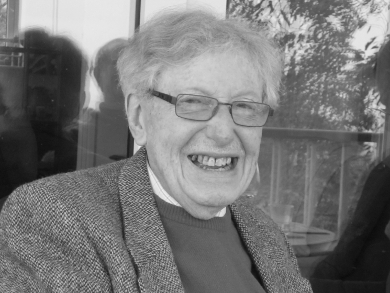A World-leading Authority on the Science and Technology of Adsorption
When Ken Sing graduated with first class honours in chemistry from the University College of the South West of England – now called the University of Exeter, UK, – in 1945 he was persuaded by the perspicacious and avuncular Dr. John Gregg (formerly a colleague of Jacob Bronowski at the University of Hull), to study the uptake of certain gases by porous solids like carbons, pigments, some minerals and pharmaceuticals. The aim was to determine the magnitude of the internal surface areas of these solids – which could be more than 600 m2/g (larger than a football pitch) – and their pore volumes. Little did these two pioneers think at that time that, fifty years later, almost all university science departments in the world would have on their shelves the first and second editions of the classic book, by Gregg and Sing (1967 and 1982 respectively; Russian translations 1970 and 1985), entitled “Adsorption, Surface Area and Porosity”.
Nowadays, Sing’s other monographs, notably “Adsorption of Powders and Porous Solids” (1999), co-authored with the French scientists, F. and J. Rouquérol and the monumental 5-volume “Handbook of Porous Solids” (2002), co-edited with two distinguished German scientists, F. Schüth, Max Planck Institute für Kohlenforschung Mülheim/Ruhr and J. Weitkamp of the University of Stuttgart, are widely consulted by all those concerned with the fundamentals and applied aspects of nanomaterials, especially nanoporous solids. Selective adsorption of impurities or toxic components of gases and liquids are effective procedures in modern-day clean technology and green chemistry. Nanoporous materials also figure eminently as catalysts in the petrochemical and pharmaceutical industries: The precise nature of their porosity governs the speed of chemical conversions that they catalyze.
Born in Bideford, North Devon, UK, Ken Sing joined Imperial Chemical Industries (ICI), Stockton-on-Tees, UK, after graduating with a Ph.D. from Exeter in 1948. From 1949 to 1956 he lectured at the Royal Technical College, Salford; and from 1956 to 1965 he was Head of Chemistry at the Liverpool College of Technology. From 1965, to his retirement in 1990, he was Head and Professor of Chemistry at Brunel University, Uxbridge. Later he had periods as a visiting professor in the universities of Bristol, Exeter, both UK, Melbourne, Australia, Mainz, Germany, and Kentucky, USA. It was at Brunel that he established one of Europe’s leading laboratories for the science and industrial applications of adsorption. Scientists young and old came to work with him from all corners of the globe. Many are now in, or have held, leading positions in universities in South and North America, Europe, Asia, and Australia.
Sing held visiting appointments in numerous countries ranging from Argentina to Japan, and he conducted workshops and inaugurated international conferences on porous solids (so-called COPS meetings) all over the world – from Heidelberg to Alicante, to Edinburgh to Novosibirsk.
Being of a gentle, extremely friendly disposition without an ounce of deceit or tendency for self-aggrandisement (but blessed with a critical, constructive eye) he drew the best out of all those who came within his ambit. On his 88th birthday, which coincided with his 65 years of actual research in the field of adsorption, a Festschrift was produced in the journal “Adsorption Science and Technology”, which he had earlier inaugurated. There were eminent contributors from premier universities and multinational industries from ten countries.
Even in the depth of the cold war years, Ken Sing established warm reciprocal relationships with two eminent Soviet academicians: A. V. Kiselev and M. M. Dubinin. He also interacted with other notable experts, the Hungarian-American, Steven Brunauer and the Dutch polymath, J. H. de Boer.
Always positive in his unobtrusive and imaginative manner, he arranged for graduate students from countries like Egypt – where he served as a Visiting Professor in Ain Shams University and the American University in Cairo – to work in his laboratories in the summer, as overseas external students, to complete their Brunel University Ph.Ds. One of these later became Head of Department and Chair of Senate at a leading university in Egypt.
In great demand as a visiting speaker, worldwide, he also played a leading role (along with the late Professor D. H. Everett, FRS, Bristol, UK, and influential academics from Rutgers University, USA, Cornell, USA, Alicante, Spain, Marseilles, France, and Kyoto, Japan) in producing Technical Reports for the International Union of Pure and Applied Chemistry (IUPAC) on colloid and surface science. Sing also served for five years on the University Grants Committee, and was Vice President of the Society of Chemical Industry (SCI), and also a chairman of its publication committee. He was the recipient of the SCI Lampill Medal, and of an honourary doctorate from Universidad Nacional, Madrid, Spain. In the mid-1960s, he was the Sir Eric Rideal prize lecturer of the SCI.
Ken Sing, like his mentor, John Gregg, was one of nature’s gentlemen. Soft spoken, kind, generous and blessed with a wry sense of humour, his extra-curricular interests were many and varied. He shared with four children, his first wife (of 55 years), Ruby, and his second wife, Pat, (whom he married in 2007), a love of literature, classical music, traditional jazz, current affairs, and a dedication to social justice.
Kenneth Stafford William Sing. Born 25th February 1925, died 3rd October 2016.




